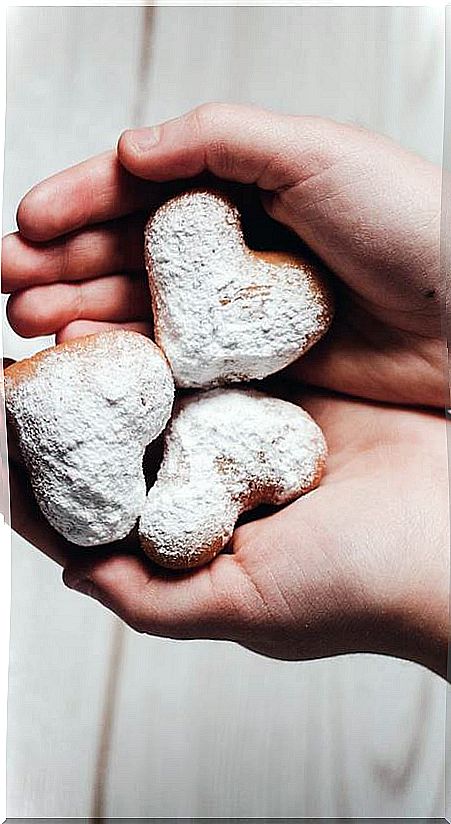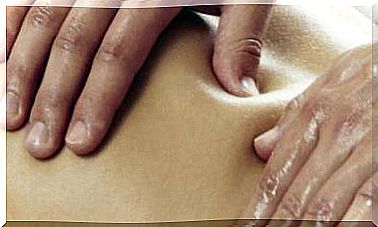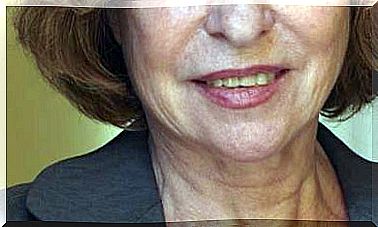Does Your Relationship Have Good Chemistry? Set The Emotional Balance
Balancing positive and negative emotions and being aware of what we emit with our attitude are the keys to the chemistry of relationships.

Energy is neither created nor destroyed: it is transformed. Relations, however, are created, destroyed and we inevitably transform:
- They are created if we have the firm determination to want to create them, and if we do the things necessary to make it happen.
- They are destroyed, however, if we do not take care of them, if we do not keep them alive, and if with our behavior we endanger them.
- And they inevitably transform us, because we do not live in isolation: we all grow as professionals and as people in relation to others.
Building relationships is an art
Everything we do for others, or what others do for us, has an effect on the relationships we maintain or are creating with them.
Let’s look at some examples …
The first meeting of the fellow
He worked in an advertising agency. We were invited to present the first ideas for the new product campaign from one of our main clients. At the end of our presentation, the marketing director asked his team members for their opinion. It was the crucial moment for us, we waited expectantly.
The process had its liturgy: the comments were made in the strict reverse order of the hierarchy : the most junior began and the director himself closed the round, which meant that he could never see his opinion discredited by someone with less rank.
An intern who had not been with the company for more than six months took the floor. It was the first major agency presentation I had ever attended, and throughout our presentation I had paid exquisite attention. With common sense and wisdom, he began to evaluate our proposals.
The marketing director cut him off instantly: “
Stop the car, sweetie, your opinion doesn’t interest us. ” You are here to see and hear. I’ll let you know when you can comment …
He told him naturally and in front of those of us who were there : his colleagues in the department and us, who were after all an external supplier.
I stood petrified, looking askance at the intern’s expression of consternation, who, dead of shame and with his gaze fixed on the ground, fell into absolute silence.
Final diagnosis
A chest X-ray had raised suspicions, and an emergency CT scan confirmed the worst: my brother had just been diagnosed, at 48, with a lung tumor. At 72 hours, he underwent a surgical intervention to extract a sample of the affected lymph nodes and do a biopsy.
Everything had happened suddenly, without time to react or digest the news. And my brothers and I roamed the hospital corridors like banshees. The questions assailed us : is it really a cancerous tumor? Will it be operable? And the ones that hurt us the most: how would their 12- and 14-year-old children assimilate it? What did we tell our mother?
I saw a surgeon pass by who had operated on my father a few years before and with whom we had forged a certain friendship. We greeted each other and he was immediately interested in the reason for my presence at the hospital.
“My brother just had a biopsy done.” They suspect that you may have lung cancer.
“Who has done the intervention?” – He asked me, visibly affected.
I gave him the name of the surgeon, and he said next:
—Look, this is precisely where he comes from, let me ask him …
He questioned the surgeon in the middle of the corridor and he, with the coldness of someone who recounts what he had for breakfast that day, replied:
“It’s a neoplasm, no doubt.” N othing to do. And at his age, he has four months at the most. .. It would be best if they did not do anything, that they did not make the patient dizzy with useless treatments.
Our doctor friend, seeing the crudeness with which he presented things, believed that the surgeon had not noticed my presence, and trying to save him from what was undoubtedly a gaffe for him, he said:
“Hey, he’s the brother.”
To which the surgeon, impassive, replied:
“Yes, I know, I have already recognized it.”
That diagnosis – point-blank and without a hint of hope – destroyed me. They weren’t exactly the words of encouragement he needed.
I know you are here
A major company wanted me to help its managers prepare presentations for the annual sales convention. For three days, I worked intensively with each manager, designing and reviewing the contents of the interventions, and rehearsing their staging. A few hours before the event we did the last dress rehearsal and the impression was very good, so I finished my work.
I said goodbye to Mercedes, one of the directors with whom we had been working most intensely, and she told me:
– I’d like you to come this afternoon. It will reassure me to see you in the audience.
“I’ll be late,” I replied, as I had a meeting at the other end of town, “but I’ll do everything I can.”
I was indeed late, and I did not dare to sit in the armchairs. I stood in a side door, from where I could perfectly see what was happening on stage and where the speaker could hardly see me.
It was Mercedes’s turn. She was full, and connected with people from the first moment. He was doing a fantastic intervention. Heartwarming at times, motivating most of the time. It was far exceeding the best of the rehearsals we had ever done.
When he finished, he received an intense and warm applause and, still waving, he went to his seat. I saw him take out his cell phone, visibly smiling. I imagined that I would have received a congratulatory message. And at that very moment my own phone rang.
He had a message: “I can’t find you, but I know you’re here. This applause is also yours ”.
Finding the balance to understand how relationships work
On an emotional level, we can imagine a scale in which we put, on a plate, all the good that happens in the context of the relationship (and that we can symbolize by the gold) and on the other, all the bad (that we represent by the lead).
- Acts such as acknowledgments, thanks, compliments, displays of affection or hours of listening are gold. Relationships that work are those in which the balance unequivocally leans towards gold, indicating that the weight of positive emotions outweighs that of negative ones.
- And they lead acts as criticism, reproaches, contempt, lack of sincerity or betrayals of trust. When a relationship leans toward lead, it is clearly in jeopardy.
Of the three stories described, the first two reflect two acts that dangerously load the scale of lead. Two acts that damage the relationship leaving it in danger. The third, on the other hand, is a case that substantially weighs the gold balance. It is a case in which positive emotions dominate, leaving the emotional balance tilted towards the positive side.
The theory of the emotional balance explains that gold and lead do not weigh the same in the balance: lead weighs much more, since a negative act always has a greater impact than a positive one.
This means that, to have a healthy relationship, we should give – and receive – much more praise than criticism. However, the reality that we live daily is the opposite, since we tend to be very explicit with criticism and, instead, we omit a lot of flattery.
It is in our hands to change this dangerous dynamic. For this, it is enough that we do it the other way around: that we be explicit with flattery and careful with criticism. And that in our day to day we do not waste any circumstance to contribute, in each and every one of our relationships, a little gold to the balance.
- To know more: The chemistry of relationships (Planet). A book on how to determine the emotional state of relationships to preserve them.









